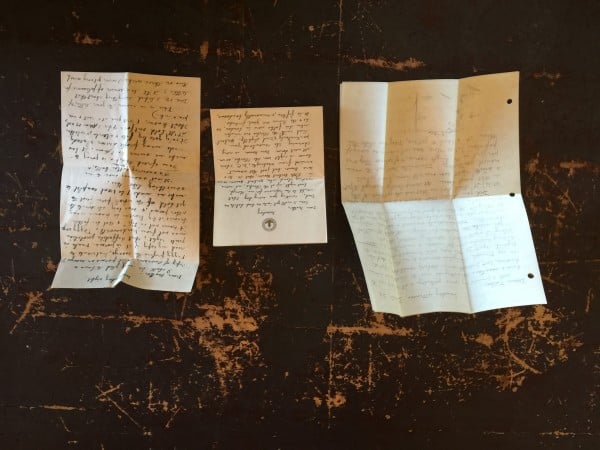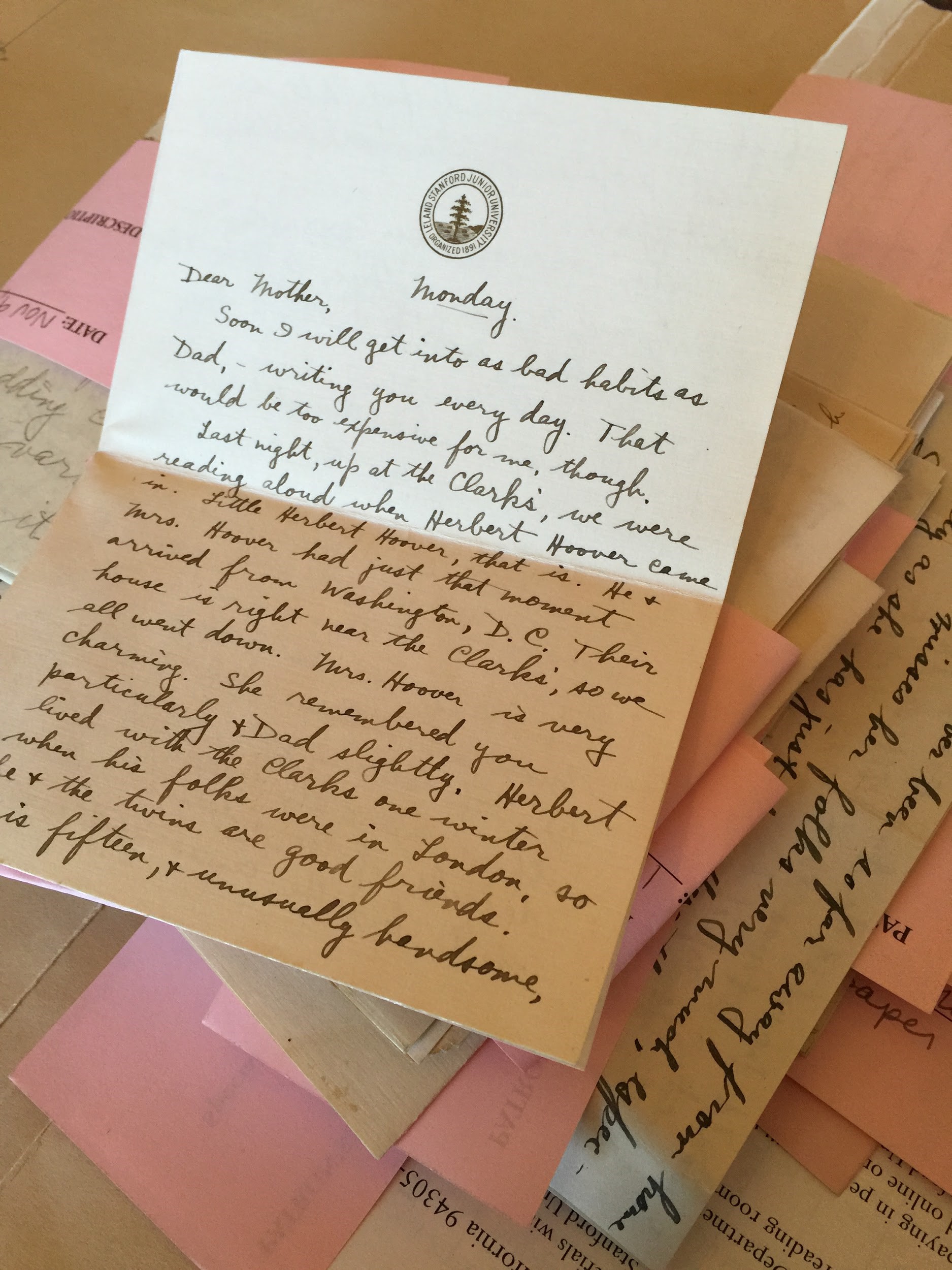A treasure trove of student experiences is being turned into a book, “Letters Home,” through a collaboration between the University Archives and Alison Davis ‘79. The Stanford Alumni Legacy Project has been carefully collecting original and scans of materials made by students and alumni during their time at Stanford — scrapbooks, photographs, posters, flyers and even texts.
“Dear Mother, Soon I will get into as bad habits as Dad — writing you every day. That would be too expensive for me, though.”
The trope of broke college students seems to be timeless. Only the next line distinguishes the author as belonging to another century: “Last night, we were reading aloud when Herbert Hoover came in. Little Herbert Hoover, that is.” That’s right, the Herbert Hoover, 31st president of the United States, but at the time of writing, just another one of the kids.

Inspired by her mother’s collection of letters home, written twice a week for four years in the 1940s, Davis is working with the University Archives to create an “intergenerational gab session” through “Letters Home.”
“Just from reading my mom’s letters and my own letters, I saw the connections between generations attending Stanford and how we have a lot more in common than meets the eye,” said Davis.
Davis has been poring through the archives’ letters, some of which date back to 1891, but she’s also actively requesting for more submissions from alumni and current students of more recent letters and media.
“No one’s writing letters, but they are writing emails and sending texts,” said Laine Bruzek ‘16, who is an undergraduate student adviser for “Letters Home.”
To Bruzek, the most interesting part of “Letters Home” is seeing how media choices in itself tell stories.
“What are the similarities and differences between the sweat-faced emoji and the anxiety that is conveyed in a letter?” she asked.
The goal of the “Letters Home” project is to not only create a collection in book form of student memories, but to also expand and bring awareness to the University Archives. In fact, every student on campus can access these primary source materials, including the Herbert Hoover letter mentioned above. One stand-out letter Davis remembers fondly was written the day after WWI, describing how the entire student body traipsed into downtown Palo Alto to throw a parade at 3 a.m. “It really makes history come alive,” said Davis.
“The letters show the uniqueness of the time period, but they also show how some things don’t change,” said Daniel Hartwig, university archivist. “There are all these adjustments coming to Stanford: You’re a fish out of water, you’re learning new things, you’re alone and scared, you miss home. The letters are much more a reflection of student life in general.”
According to Davis, some of these commonalities include students’ first letters home, letters about last days on the Farm, “laundry letters” (“How do I do the laundry? Can you send me some money?”) and Beat Cal letters. “Everyone writes home about the football game in the fall. I’ll really have to edit that chapter down,” laughs Davis.
Surprisingly, the similarities can also tend toward the negative. One letter from the 1890s is from a girl ruminating to her mother whether the male students applying for the on-campus position she wanted were favored over her. “Women have come a long way at Stanford, but certainly those issues persist,” adds Davis.
Overall, the group emphasized “Letters Home” as a collaborative effort with the Stanford community. “This is a way to let your voice be heard,” said assistant university archivist Josh Schneider. “Stanford is known for being very idiosyncratic, with lots of people doing their own thing and doing it well, and we want to make sure that that’s captured.”
All students, past and future, graduate and undergraduate, are encouraged to submit their letters and photos.
Contact Samantha Wong at slwong ‘at’ stanford.edu.
